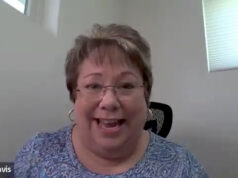Hello Everyone! It is my pleasure to share information with you about care and housing options outside of the home for an elder. After 18 years of helping families discern what the best form of care, and in what environment, is best for their loved one, I have witnessed one common theme in all families; an overwhelming sense of not knowing what they don’t know.
Let’s learn a bit of jargon in the elder care industry. What does independent living, assisted living, memory care and adult family home care mean? What can you expect from each environment? What factors should be considered when choosing a care and housing option for your loved one? Whew! Just typing those last sentences gave me a sense of being overwhelmed to break down this information succinctly. Why you ask? “She is a professional and to talk about this subject should be easy.” I will tell you why. Every person is a unique individual and no one fits into a standardize box of care. So, with that in mind, I am going to have to make some generalizations that will most likely not fit for your loved one. Your loved one is unique and will benefit from a professional helping you explore what care and housing works best for them.
Here come the generalizations.
Independent Living: Usually there is no care plan available except via the family contracting with an outside care company. Frequently there is a meal plan available for one or two meals per day and usually have activities to support an active lifestyle. Families choose this when someone doesn’t want to walk outside to get their mail any longer or they don’t want to worry about the gutters getting cleaned. There is a longing for interaction with other same aged people and the circle of support to the elder would like to have peace of mind that someone is in the building if emergency help is needed.
Assisted Living: You can expect care for activities of daily living (ADLs) such as bathing, eating, toileting, dressing, transferring and ambulation. All meals are prepared and activities are offered for varying levels of lifestyle abilities. Families choose assisted living when someone can advocate for themselves, be self-motivating with limited encouragement and want to have support in managing their loved ones care via medication management and possibly in facility doctor support.
Memory Care: Most memory care communities require a formal diagnosis of some kind of dementia. You can expect all levels of care with ADLs from minimum to full assistance. All meals are prepared and can include individual feeding. There is usually keen attention given to a scheduled day with focus given to varying levels of cognition needed for each activity. Families choose this type of community when there may be a need to expel energies, both physical and mental as well as a safe, locked environment.
Adult Family Homes: This is a flexible and small community of care. Every state may not offer this community of care and they may go by different names from state to state. Usually there are six to eight people who live in a home-like environment and receive very individual care. Adult family homes can provide care that ranges from independent to full memory care. Families choose this form of care when someone wants a small, home-like environment with lots of flexibility to meet their loved ones needs. When a person could feel overwhelmed with having to make many decisions or the size of the community may cause anxiety, this may be an effective alternative. Many times adult family homes are able to accept a wider range of financial resourcing including Medicaid.
There you have it, a generalization of care and housing options and generally why you would choose one community over another. Your loved one is not “general” but rather unique. Please consult with a hands-on placement professional who can objectively look at your loved one and help discern how to have their uniqueness blossom and augment their life to continue living with dignity, respect and safety.
You can contact Daphne Davis, CEO of Pinnacle Senior Placements at: [email protected] or by phone at: 855-734-1500










